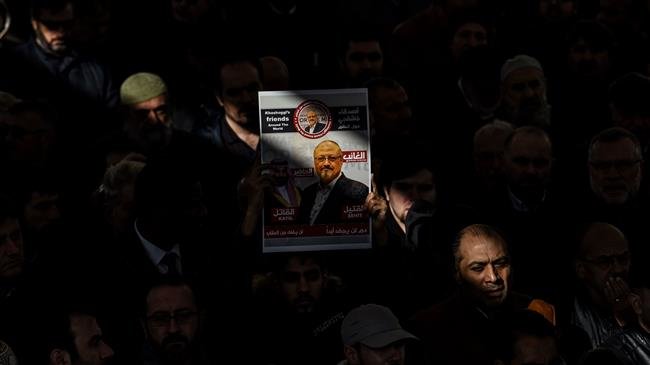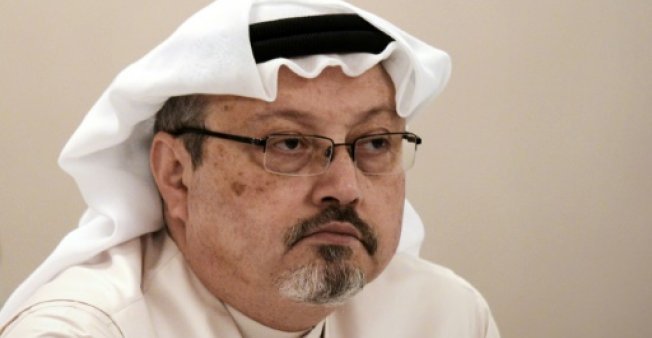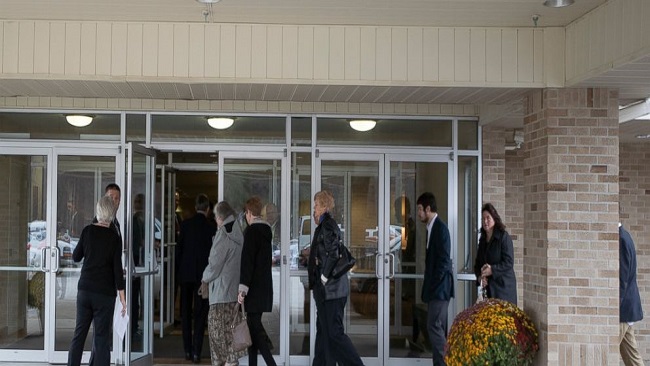19, November 2018
Khashoggi Affair: Germany bans 18 Saudis from entering Schengen zone 0
Germany has imposed travel bans on 18 Saudi nationals suspected of having links to the murder of dissident journalist Jamal Khashoggi at the kingdom’s diplomatic mission in Turkey’s Istanbul early last month.
German Foreign Minister Heiko Maas made the announcement on Monday, saying the 18 Saudi citizens had been banned from entering the country’s territory as well as Europe’s Schengen passport-free zone over Khashoggi’s killing.
“As before, there are more questions than answers in this case, with the crime itself and who is behind it,” Maas said on the sidelines of a European Union meeting in Brussels, adding that he had discussed the decision with his British and French counterparts prior to the announcement.
Berlin has “decided that Germany should impose an entry ban on 18 Saudi citizens, who are presumed to be in connection with this deed, in the Schengen information system,” Maas told reporters.
Mass’ office later announced that it could not release the names of those sanctioned Saudi nationals due to Germany’s privacy laws, but said the members of the 15-strong squad accused of carrying out the killing and a further three suspected of organizing the brutal act had been given entry bans.
The Schengen Area comprises 22 EU countries and four non-EU countries. Britain is not part of the passport-free Schengen zone but shares intelligence through Shengen Information System (SIS) for law enforcement purposes.
Germany has already imposed a ban on selling weapons to Riyadh until the circumstances of Khashoggi’s killing are fully cleared up.
The United States also imposed economic sanctions on 17 Saudi nationals last week, including suspected members of the alleged hit squad and senior advisers to Saudi Crown Prince Mohammed bin Salman – who is alleged to have been involved in the killing of the 59-year-old critic.
US media reported on Saturday that the US Central Intelligence Agency (CIA) believed with “high confidence” that the Saudi crown prince directly ordered the killing.
Saudi Arabia is facing global criticism over Khashoggi’s killing inside the Saudi consulate in Istanbul on October 2.
Khashoggi, a prominent commentator on Saudi affairs who wrote for the Washington Post’s Global Opinions section, had lived in self-imposed exile in the US since September 2017, when he left Saudi Arabia over fears of the Riyadh regime’s crackdown on critical voices.
The 59-year-old was seeking to secure documentation for his forthcoming marriage when he entered the Saudi consulate, but never came out despite Riyadh’s initial claim that he exited the mission less than an hour after completing his paperwork.
The Saudi kingdom, after denying the murder for several days, finally admitted that Khashoggi had been killed in the consulate during an interrogation by rogue operatives that had gone wrong after diplomatic pressure grew tremendously on Riyadh to give an account on the mysterious fate of its national.
However, Saudi Arabia said that it did not know the whereabouts of Khashoggi’s body, which is widely believed to have been dismembered.
Turkish President Recep Tayyip Erdogan has said the assassination was ordered at the “highest levels” of the Saudi government, but stopped short of pointing the finger of blame at the crown prince.
Turkey wants the 15-man team that it says killed the journalist to be tried there.
Source: Presstv



























21, November 2018
436,000 Ambazonians internally displaced, Humanitarian response plan underfunded 0
With at least 436,000 people currently internally displaced in Cameroon’s South-West and North-West – and in neighbouring departments – due to hostilities between armed groups and security forces, the country remains of urgent humanitarian concern.
Humanitarian presence and response are slowly increasing in the affected areas, with priority given to the South-West region which is the epicentre of the displacement crisis with 246,000 IDPs. OCHA has strengthened its capacity including on access and civil-military coordination, and other UN humanitarian agencies are establishing a presence in the two regions and are responding primarily through NGOs in the affected areas.
However, limited access due to insecurity and lack of funding remain impediments to the scale-up of humanitarian programming.
A special three-months response plan launched at the end of May to address the urgent needs of 160,000 vulnerable people in the South-West and North-West requested US$15 million in funding. But only a $5 million rapid response grant from the Central Emergency Response Fund has been received.
The overall 2018 Humanitarian Response Plan for Cameroon requesting $320 million is also underfunded at less than 37 per cent.
Office for Coordination of Humanitarian Affairs (OCHA).